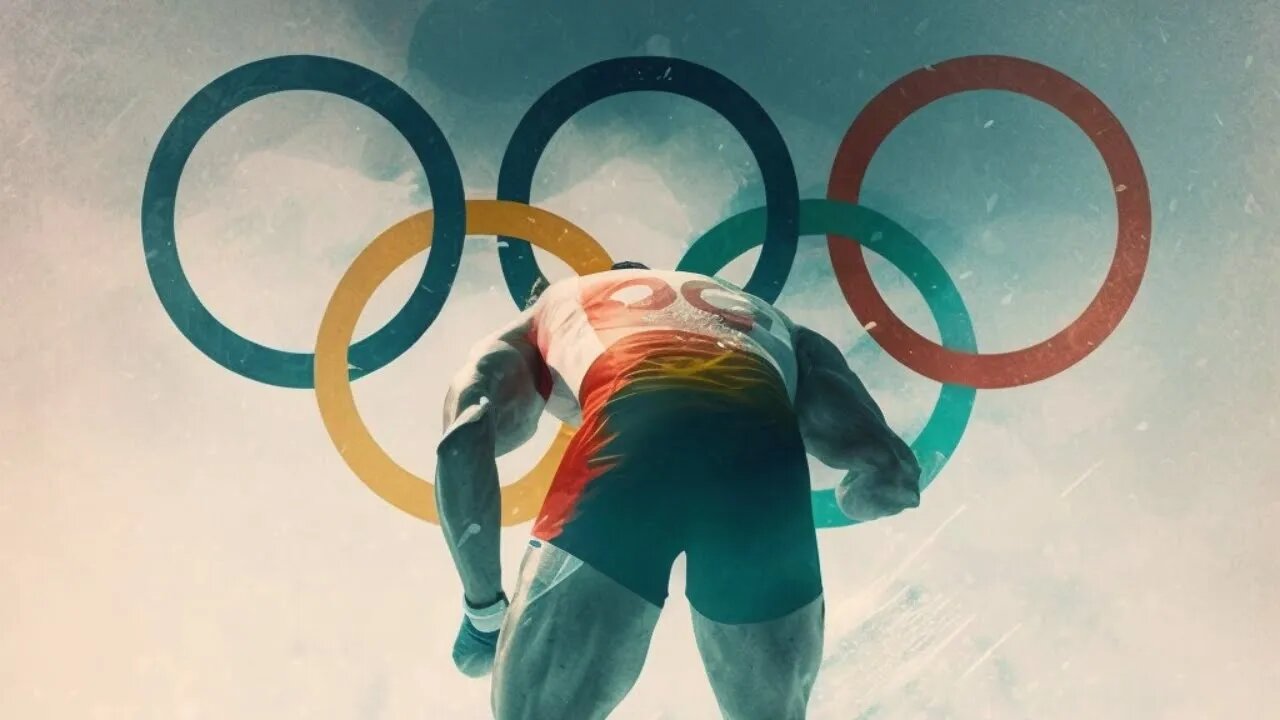Premium Only Content

How Weird Are the Olympic Games? Unbelievable Facts Revealed!
In this video, we'll take a look at some of the Weirdest and Unbelievable facts about the Olympic Games. From the birthplace of the torch relay to the origins of the Olympic rings, we'll explore some of the weirdest and most interesting bits of Olympic history!
From sporting events that you never knew happened to bizarre quirks of the Olympic spirit, in this video we'll take a look at some of the weirdest facts about the Olympic Games. From surprising origins to strange traditions, this video is sure to fascinate and excite fans of the Olympic Games!
Subscribe to Daily Dose Of Fact - https://bit.ly/2Z4b0m0
The Olympic Flag: The Olympic flag is a symbol of the Olympic movement and was first introduced in 1914. The flag features five interlocking rings in the colors blue, yellow, black, green, and red, representing the world's five continents.
The Olympic Oath: An Olympic Oath is taken by an athlete during the opening ceremony of the Olympic Games. The oath states that the athlete will compete in the Olympic Games in a fair and sportsmanlike manner.
The Olympic Flame: The Olympic flame is a symbol of the Olympic Games and is always lit at the Temple of Hera in Olympia, Greece. The flame is then carried by runners to the host city of the Olympic Games, where it is used to light the Olympic cauldron. The Olympic flame was not a part of the Games until the 1936 Berlin Olympics, and it symbolizes the passing of the flame of peace and unity from one generation to the next.
The Olympic Motto: The Olympic motto is "Citius, Altius, Fortius," which is Latin for "Faster, Higher, Stronger." This motto reflects the spirit of the Olympic Games, where athletes strive to improve their performance and push the boundaries of what is possible.
The Olympic Hymn: The Olympic Hymn is played during the opening and closing ceremonies of the Olympic Games. The hymn was composed by Spyridon Samaras and is dedicated to Zeus, the king of the gods in Greek mythology.
The Olympic Village: The Olympic Village is a housing complex built for the athletes competing in the Olympic Games. The village typically includes facilities such as dining halls, training facilities, and recreational areas, and is designed to provide a supportive and welcoming environment for the athletes. And is considered as a symbol of peace and unity.
The Olympic Rings: The five interlocking rings on the Olympic flag represent the world's five continents: Europe, Asia, Africa, Australia, and the Americas. The rings were created by Pierre de Coubertin, the founder of the International Olympic Committee, in 1913.
The Olympic Torch Relay: The Olympic torch relay is a tradition that takes place before the start of each Olympic Games. The torch is carried by runners from the ancient Olympic site in Olympia, Greece to the host city of the Olympic Games, symbolizing the continuity of the Olympic Games.
The Olympic Medals: The Olympic medals are awarded to the athletes who place first, second, and third in each event. The medals are designed specifically for each Olympic Games.
And The Olympic medal design has changed several times: The design of the Olympic medals has changed several times throughout history, with the current design featuring a depiction of Nike, the Greek goddess of victory.
The first modern Olympic Games were held in Athens, Greece, in 1896 and included just 9 sports and 43 events. Today, the Olympic Games feature over 30 sports and hundreds of events.
The first Winter Olympic Games were held in Chamonix, France, in 1924 and featured just 6 sports and 16 events. Today, the Winter Olympics feature 15 sports and over 100 events.
In the early days of the Olympic Games, athletes competed in the nude. This was to represent the ancient Greek ideal of the human form and to show that athletes were competing in the spirit of friendly competition, without the influence of clothing or gear. And was continued until the late 19th century.
The Olympic Games have been used as a platform for political protest in the past. For example, at the 1968 Summer Olympics in Mexico City, American athletes Tommie Smith and John Carlos raised their fists in a Black Power salute during the medal ceremony for the 200-meter race.
The Olympic Games have had a number of memorable and unusual events throughout their history, including the 1900 Summer Olympics in Paris, which featured live animals as competitors in events such as pigeon racing and horse jumping.
The Olympic Games have been the subject of many conspiracy theories, including claims that the games are fixed or that the winners are determined ahead of time. And have also been the site of many controversies, including allegations of doping, cheating, and corruption.
Women were not allowed to participate in the Olympics: Women were banned from participating in the Olympic Games until the modern era, where the first female athletes competed in the Paris Games in 1900.
-

TimcastIRL
3 hours agoNew DOCS PROVE Obama Hillary CONSPIRACY To SABOTAGE Trump Admin | Timcast IRL
162K43 -
 LIVE
LIVE
Laura Loomer
3 hours agoEP136: YOU'RE FIRED! White House Vetting Crisis Continues
924 watching -
 8:07
8:07
MattMorseTV
3 hours ago $0.69 earnedTrump just LOWERED PRICES by 75 PERCENT.
4.77K15 -
 LIVE
LIVE
Misfit Electronic Gaming
6 hours ago $0.09 earned"LIVE" "Blind Descent' +"Dollhouse of Dead" Playtest 10 Followers till we hit 1000! We CAN do this!
99 watching -
 21:53
21:53
Glenn Greenwald
5 hours agoMichael Tracey on the Street: What Do People Think of the Epstein Case?
98.1K52 -
 2:26:28
2:26:28
megimu32
2 hours agoOTS: Board Games Gone Wild! The Loud, Weird & Chaotic Games That Raised Us
4.84K6 -
 LIVE
LIVE
DamnDanieI
3 hours agoKill First, Loot Later – OTG Live
306 watching -
 56:41
56:41
Donald Trump Jr.
7 hours agoLies, Leaks, and Lawfare: Censorship Corruption Exposed | TRIGGERED Ep.263
126K111 -
 1:19:46
1:19:46
Precision Rifle Network
4 hours agoS4E25 Guns & Grub - Rex Is Back, I shot the 6.5PRC finally...
4.47K1 -
 LIVE
LIVE
rhywyn
2 hours agoうつ
28 watching